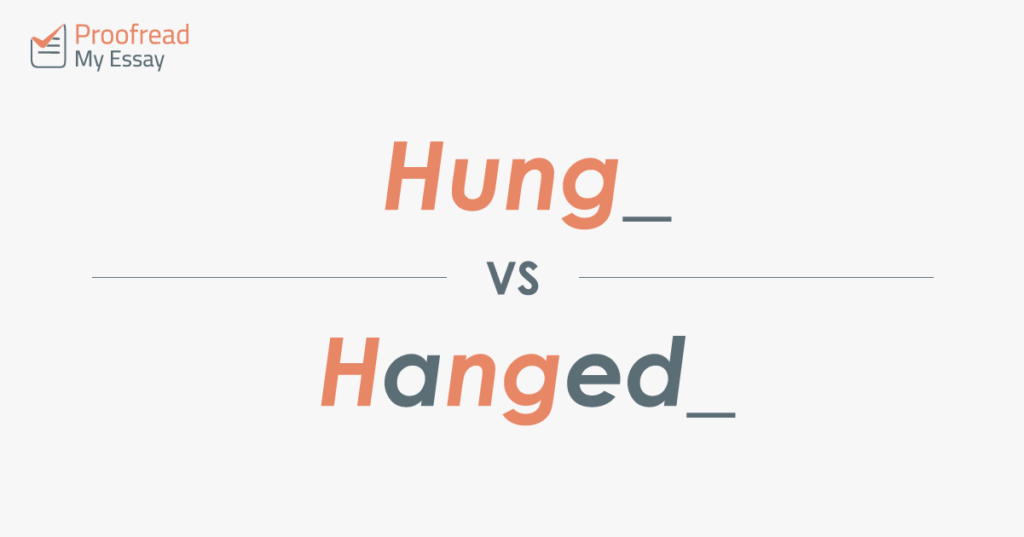Mixing up ‘hung’ and ‘hanged’ is quite a common error, even among native English speakers. This is because both words can be the past tense of ‘hang’ in some situations.
But ‘hanged’ has quite a specific meaning, so it isn’t a term you’ll hear every day (we hope). It’s therefore worth learning how both of these terms should be used so you can avoid mistakes.
Hung (Past Tense of ‘Hang’)
In most cases, the simple past tense and past participle of ‘hang’ is ‘hung’. Thus, if anything has been suspended or dangled somewhere, we can say it was ‘hung’:
She hung the painting on the living room wall.
We also use ‘hung’ with the slang senses of ‘hang’ (e.g. ‘hang out’ or ‘hangover’). So we might say:
We hung out at the pub last night, so now I’m hungover.
You shouldn’t use these informal senses of ‘hang’ in academic writing, though!

(Photo: gwmiddleditch)
Hanged (Executed by Hanging)
The word ‘hanged’ is used when someone has been put to death by hanging. This was a common method of execution in the past, so you might find something in an old news report saying:
Find this useful?
Subscribe to our newsletter and get writing tips from our editors straight to your inbox.
The accused was hanged by the neck until he died.
Importantly, ‘hanged’ is only used when the intention is to kill someone. So, if you suspended someone by the ankles instead, they’d have been ‘hung upside down’ (not ‘hanged’).
Hanging is no longer used as a method of punishment in the UK (nor in most other countries). But you may need to remember ‘hanged’ if you’re writing about punishments from the past.
Hung or Hanged?
Given the very specific meaning of ‘hanged’, it pays to be careful with these words. If nothing else, it could sound a little strange if you tell a visitor that you’ve ‘hanged’ their coat somewhere!
The key is that ‘hanged’ is specific to hanging with a noose or rope. In all other cases, the correct past tense term is ‘hung’, so this is the word you’ll need most of the time. Remember:
Hung = Past tense/past participle of ‘hang’
Hanged = Put to death by hanging



